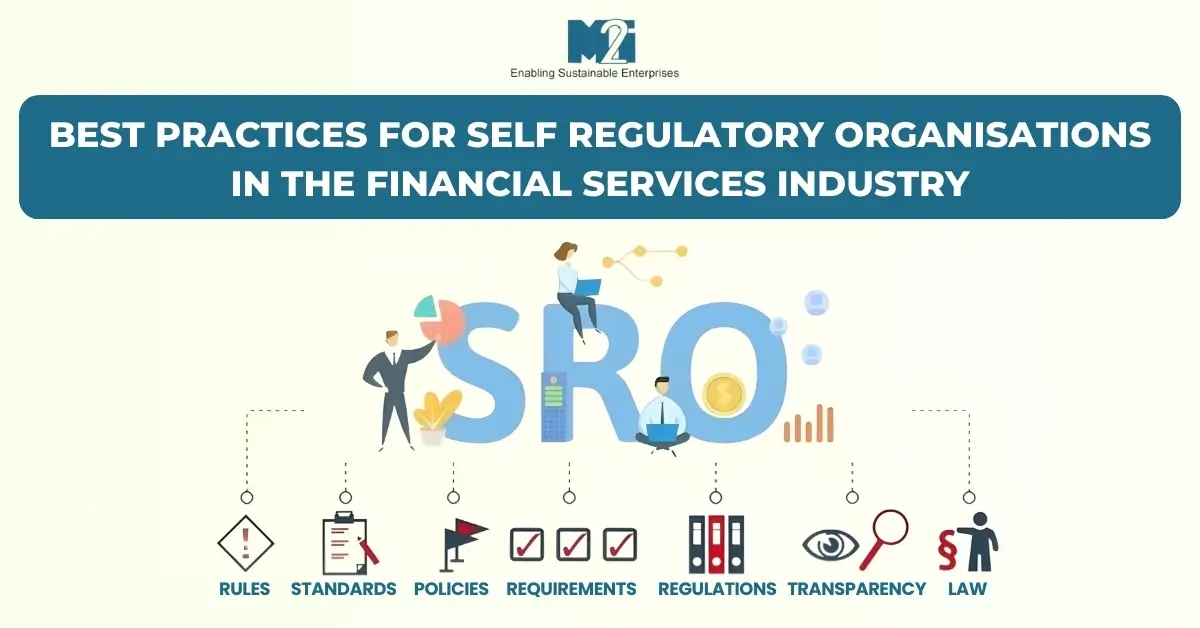
Best Practices for Self Regulatory Organisations in the Financial Services Industry
Self-Regulatory Organizations (SROs) in the banking and financial services industry play an important role in maintaining the integrity and stability of the sector. These entities, recognized by regulatory authorities like the Reserve Bank of India (RBI), operate on the principle of self-regulation, allowing industry members to create and enforce standards and practices among themselves. Here are some best practices that SROs should adhere to ensure that they perform the roles which are expected of them.
Governance and Independence
Good governance is fundamental to the effectiveness of an SRO. The board should include independent members with no active association with the entities being regulated. This ensures decisions are made in the best interest of the sector and the public, free from conflicts of interest.
SROs must foster a strong culture of compliance among their members, emphasizing the importance of adhering to regulatory norms and ethical standards. This involves not only the enforcement of rules but also the cultivation of a mindset that values integrity and accountability.
Adequate representation of Smaller Entities
Given the diversity of entities within the financial sector, special attention should be given to smaller entities. SROs should ensure that these entities are not marginalized and that they receive the support and guidance needed to meet compliance standards.
Innovation is key to the growth and competitiveness of the financial sector. SROs should encourage a culture of research and development among their members while ensuring that innovations adhere to compliance standards and do not compromise the safety and soundness of the financial system.
Transparent and Equitable Treatment
All members should be treated transparently and equitably. SROs should establish clear, fair, and non-discriminatory policies that apply to all members equally, ensuring that no entity is favored over another.
A robust code of conduct is essential for setting out the expectations for member behavior. SROs should monitor adherence to this code rigorously and enforce compliance with regulatory instructions, ensuring that members maintain the highest standards of professionalism and ethics.
Grievance Redressal and Dispute Resolution
An effective grievance redressal and dispute resolution mechanism is crucial for resolving conflicts efficiently and fairly. SROs should establish transparent processes that align with regulatory and statutory requirements, providing a fair platform for all parties involved.
SROs should maintain transparency with the regulatory authority through regular reporting and allow for audits of their operations. This ensures accountability and provides the regulator with insights into the SRO’s effectiveness and compliance with established norms.
Adequate Resources
SROs must have adequately skilled human resources and robust technical capabilities to effectively monitor the sector and enforce compliance. This includes having a well-trained staff and the necessary technological infrastructure to support their activities.
The regulator must retain the authority to revoke the recognition of an SRO if it acts contrary to public interest or fails to meet its objectives. Conversely, clear criteria for the recognition of SROs ensure that only capable and reliable organizations are entrusted with self-regulatory responsibilities.
By adhering to these best practices, SROs can significantly contribute to the stability, integrity, and growth of the banking and financial services industry. These practices not only help in managing risks and protecting consumer interests but also in promoting innovation and competitiveness within the sector.